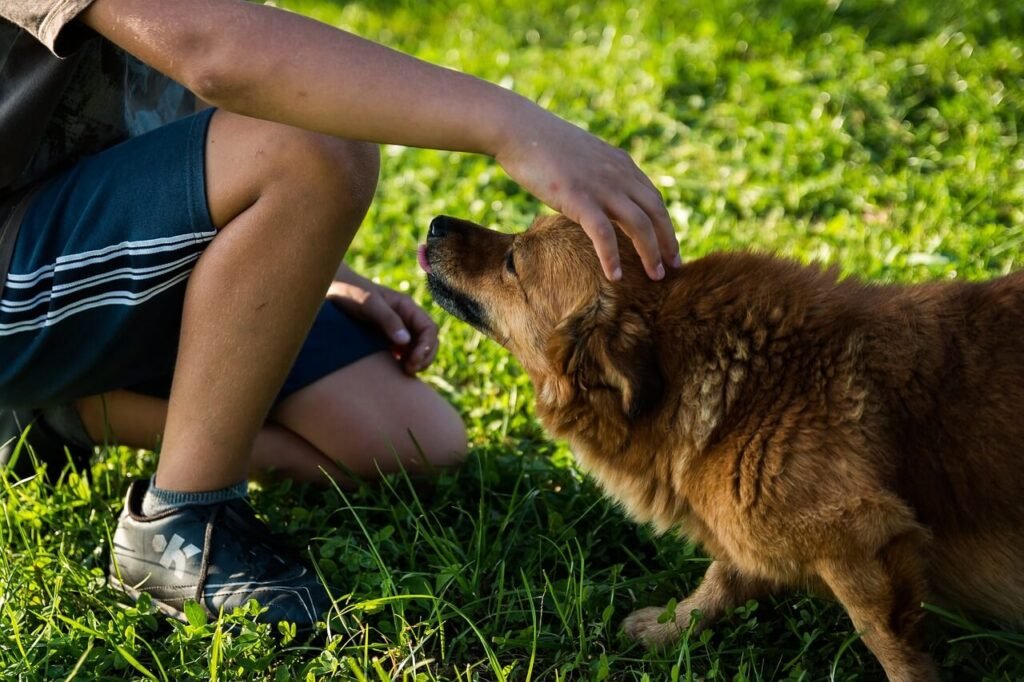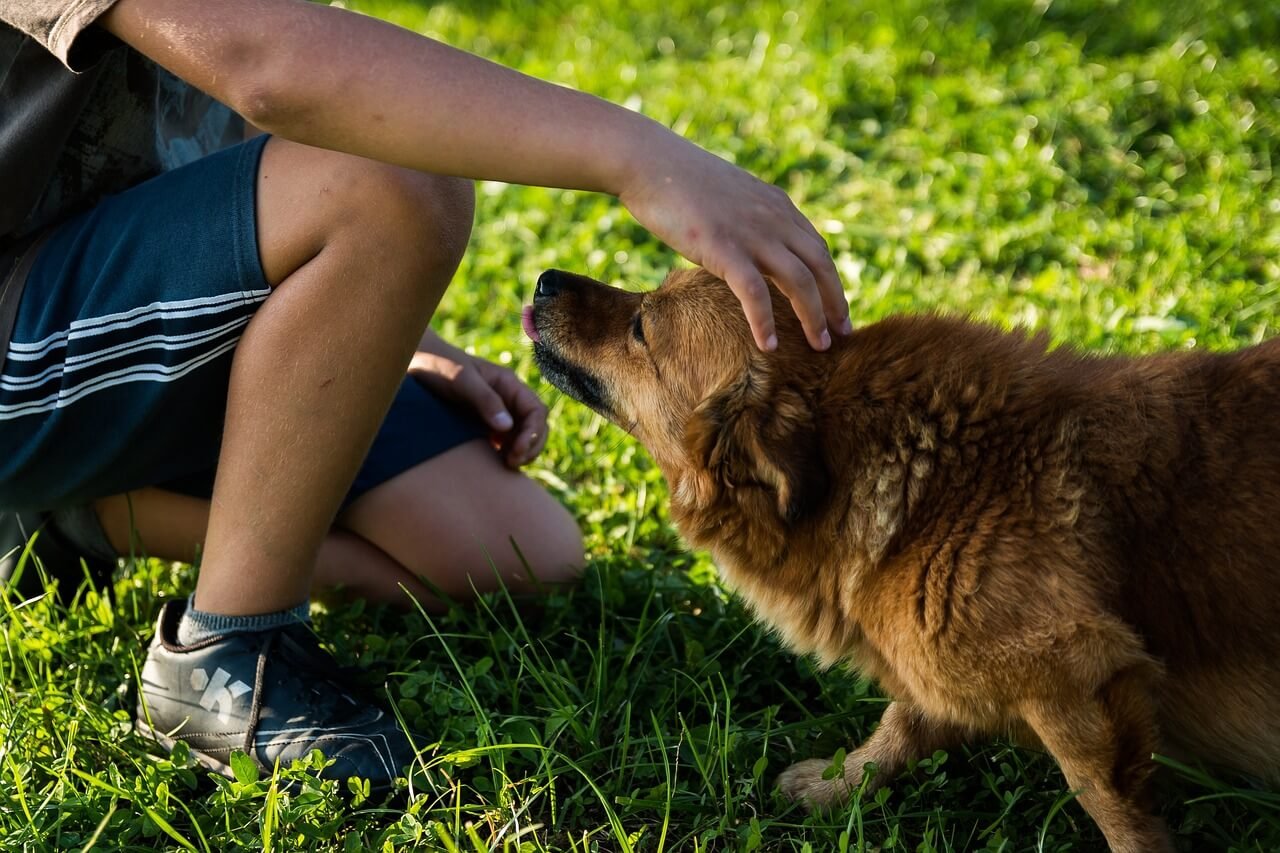Why Does My Dog Bite My Feet? Understanding the Behavior
If you’ve ever wondered, “Why does my dog bite my feet?” you’re not alone. This quirky yet sometimes puzzling behavior is more common than you might think. While it can be adorable when your pup gently nibbles your toes, it can also become frustrating—or even painful—if the biting gets out of hand. Dogs communicate through their actions, and understanding why they target your feet can help you address the root cause. In this blog post, we’ll explore the reasons behind this behavior, how to manage it, and ways to redirect your dog’s energy into more appropriate activities. By the end, you’ll have a clearer picture of what’s driving your dog’s foot-biting habit and how to handle it effectively.
Common Reasons Why Your Dog Bites Your Feet
Dogs bite feet for a variety of reasons, and understanding the motivation behind the behavior is key to addressing it. Here are some of the most common explanations:
Playful Energy
Many dogs see feet as moving targets, especially if they’re wiggling or shuffling. This playful behavior is often seen in puppies and high-energy breeds.Teething or Chewing Instincts
Puppies go through a teething phase where chewing provides relief. Feet may inadvertently become an easy target for their gnawing needs.Attention-Seeking Behavior
If your dog feels ignored, they might resort to biting your feet as a way to get your attention—even if it’s negative attention.Herding Instincts
Breeds like Border Collies or Australian Shepherds may nip at feet because of their natural herding tendencies, which involve controlling movement.Anxiety or Stress
Some dogs bite feet as a coping mechanism when they feel anxious, overwhelmed, or unsure of their surroundings.
Recognizing the reason behind your dog’s behavior is the first step toward addressing it. Once you identify the trigger, you can work on redirecting their energy in healthier ways.
How to Stop Your Dog from Biting Your Feet
Stopping your dog from biting your feet requires patience, consistency, and positive reinforcement. Here are some practical strategies to curb this behavior:
Redirect with Toys
Keep chew toys or tug ropes nearby to offer your dog an alternative whenever they start targeting your feet.Teach the “Leave It” Command
Train your dog to respond to the “leave it” cue by rewarding them when they stop biting and focus on something else.Provide Mental Stimulation
Engage your dog with puzzle toys, interactive games, or obedience training to channel their energy into productive activities.Set Boundaries Early
Discourage foot-biting from the start by firmly saying “no” or “stop” and rewarding calm behavior instead.Increase Exercise and Playtime
A tired dog is less likely to engage in unwanted behaviors. Ensure your pup gets enough physical activity to burn off excess energy.
By implementing these techniques, you can teach your dog that biting feet isn’t acceptable while providing them with healthier outlets for their instincts. Consistency is key to success.
Check this guide 👉Dog Biting Nails: Top 7 Best Tips for Healthier Paws!
Check this guide 👉Why Is My Dog Biting His Leg? Best 7 Behavior Tips!
Check this guide 👉Why Is My Dog Licking the Air? Best 7 Behavior Tips!

Signs Your Dog’s Foot-Biting Is Problematic | Ways to Address the Behavior |
|---|---|
Frequent biting despite corrections | Redirect with toys or treats |
Growling or showing aggression during biting | Consult a professional trainer |
Biting causes pain or breaks skin | Use protective footwear indoors |
Behavior escalates over time | Increase structured training |
Linked to anxiety or fear | Provide calming aids or routines |
Preventing Foot-Biting in Puppies
Puppies are naturally curious and use their mouths to explore the world, but early intervention can prevent foot-biting from becoming a long-term habit. Here’s how to guide your puppy toward better behavior:
Socialize with Other Dogs
Let your puppy play with well-behaved dogs to learn bite inhibition and proper social cues.Use Positive Reinforcement
Reward your puppy with treats or praise when they interact gently with your feet or hands.Avoid Rough Play
Refrain from playing games that encourage mouthing or nipping, such as wrestling or tug-of-war without rules.Introduce Chew Alternatives Early
Offer a variety of chew toys to satisfy their need to gnaw and reduce temptation to bite feet.Be Consistent with Corrections
Use the same verbal cue (like “ouch!”) every time they bite too hard, followed by a brief pause in play.
By setting clear boundaries and reinforcing good behavior, you can help your puppy grow into a well-mannered adult dog who respects personal space.
When to Seek Professional Help
While occasional foot-biting is normal, there are times when it may indicate a deeper issue that requires professional guidance. Here are signs it’s time to consult a trainer or veterinarian:
Aggressive Biting Accompanied by Growling
If your dog shows signs of aggression, such as snarling or snapping, it could indicate fear or territorial behavior.Persistent Biting Despite Training Efforts
If redirection and training don’t seem to work, a professional can assess underlying behavioral issues.Sudden Changes in Behavior
A normally calm dog suddenly biting feet could signal stress, illness, or discomfort that needs attention.Biting Linked to Separation Anxiety
Dogs with separation anxiety may exhibit destructive behaviors, including excessive foot-biting, when left alone.Injuries Caused by Biting
If your dog’s biting results in broken skin or frequent discomfort, seek advice to protect both you and your pet.
Addressing these concerns promptly ensures your dog’s well-being and strengthens your bond. Don’t hesitate to reach out to experts—they’re here to help!
Fun Alternatives to Redirect Foot-Biting Behavior
Redirecting your dog’s biting habit toward more appropriate activities can be both fun and rewarding. Here are some engaging alternatives to keep your dog entertained:
Interactive Puzzle Toys
These toys challenge your dog’s mind and provide a healthy outlet for their chewing instincts.Tug-of-War Games
A structured game of tug with a rope toy satisfies your dog’s need to bite while teaching self-control.Fetch with Durable Balls or Discs
Playing fetch channels your dog’s energy into running and retrieving instead of nibbling on your feet.Chew-Friendly Snacks
Offer long-lasting chews like bully sticks or dental bones to keep their jaws busy and away from your toes.Agility Training
Set up a mini agility course in your backyard to engage your dog physically and mentally.
By introducing these fun alternatives, you’ll not only stop the foot-biting but also enhance your dog’s overall well-being. A happy dog is one that’s kept busy and stimulated!
Signs Your Dog’s Biting Is Playful vs. Aggressive
It’s important to differentiate between playful biting and aggressive behavior to address the issue appropriately. Here are some signs to help you tell the difference:
Playful Biting
Accompanied by a wagging tail, relaxed body language, and gentle mouthing without pressure.Aggressive Biting
Often involves growling, stiff body posture, or snarling, indicating discomfort or dominance.Play Bow Stance
If your dog crouches with their front legs extended and rear end up before biting, it’s likely playful.Biting During Excitement
Playful biting usually happens when your dog is overly excited, such as during greetings or playtime.Biting Out of Fear
Aggressive biting may occur if your dog feels threatened, cornered, or anxious in certain situations.
Understanding whether your dog’s biting is playful or aggressive helps you respond appropriately. Always prioritize safety and seek professional advice if aggression is suspected.
Tips for Managing Foot-Biting in Multi-Dog Households
If you have multiple dogs, managing foot-biting can become more challenging, as their interactions may reinforce the behavior. Here are some tips to handle this dynamic effectively:
Separate Training Sessions
Work with each dog individually to focus on their specific needs and prevent distractions.Encourage Positive Role Modeling
Allow calmer, well-behaved dogs to set an example for others during group activities.Monitor Playtime Closely
Supervise interactions to ensure rough play doesn’t escalate into excessive mouthing or biting.Use Separate Chew Toys
Provide each dog with their own toys to avoid competition and reduce the temptation to bite feet.Create Designated Zones
Assign specific areas for each dog to relax, reducing stress and territorial behavior that may lead to biting.
Managing foot-biting in multi-dog households requires extra attention and consistency. By addressing the behavior early and fostering a calm environment, you can minimize conflicts and ensure harmony among your furry family members.
FAQ
Why does my dog bite my feet when I walk?
Your dog may see your moving feet as a fun target for play or be trying to herd you due to their instincts.
Is foot-biting a sign of aggression?
Not always. Most cases are playful or attention-seeking, but growling or snapping indicates potential aggression that should be addressed.
How can I stop my puppy from biting my feet?
Redirect their attention to toys, use consistent corrections, and reward calm behavior to discourage biting.
Should I punish my dog for biting my feet?
Avoid punishment, as it can increase fear or aggression. Instead, focus on positive reinforcement and redirection.
Can older dogs learn to stop biting feet?
Yes! With patience and consistent training, older dogs can unlearn unwanted behaviors and adopt new habits.
Building a Harmonious Relationship with Your Dog
Understanding why your dog bites your feet is the first step toward fostering a harmonious relationship. Whether it’s playful energy, teething, herding instincts, or anxiety driving the behavior, addressing the root cause will help you create a calmer, happier household. Through consistent training, redirection, and plenty of love, you can guide your dog toward better manners while strengthening your bond. Remember, every dog is unique, so patience and empathy are essential. With time and effort, those pesky foot-biting habits will fade away, leaving room for joyful moments shared between you and your furry best friend.
Keeping Your Dog Safe This Summer: Best 7 Expert Tips! – Learn how to protect your pup from heatstroke, dehydration, and more this summer. Stay safe!
When Was Cat Food Invented? Best 7 Expert Tips! – Discover the history, key milestones, and evolution of cat food from scraps to scientifically balanced diets.
When Was Dog Food Invented? Best 7 Expert Tips! – Discover the origins, evolution, and milestones of dog food, and how it transformed pet nutrition over time.
Kintamani Dutch Shepherd Mix: Best 7 Expert Tips! – Discover the perfect blend of loyalty, agility, and charm with this unique hybrid. Learn expert care tips now!





